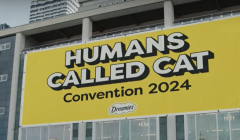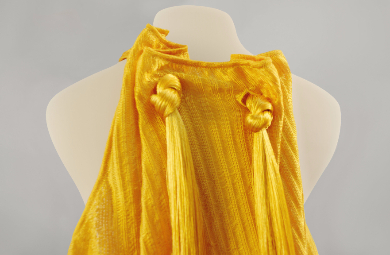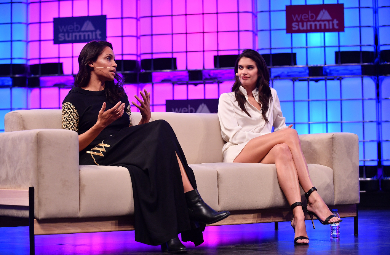
Dreamies investigation proves that the treats are irresistible to cats
The campaign by Adam&EveDDB concludes that the only cats who don’t love the pet treat are human Cats
At this year’s Web Summit in Lisbon, the tech industry converged for three days of debate that celebrated the industry's potential whilst also acknowledging its many challenges.


At this year’s Web Summit in Lisbon, the tech industry converged for three days of debate that celebrated the industry's potential whilst also acknowledging its many challenges.
On Centre Stage, speakers wrestled with some tough topics: the promise and perils of AI; the challenges of malign influences on social media and the unfettered powers of big tech, not to mention the ongoing sexual harassment furore. Transforming the planet for the better was also a prominent theme, whether it was disrupting transportation, making fashion sustainable or tackling climate change.
Across four vast exhibition halls, two thousand start-ups vied for elbow room to share their innovations, which spanned everything from sensory reality pods to digital divorces.
Meanwhile across multiple stages hosting 25 different conference streams, talks and debates tackled diverse topics ranging from cryptocurrencies and machine learning to intelligent healthcare and autonomous vehicles.
Here are brief highlights of a few talks which captured the spirit of the three-day Summit.


Fusing Technology with Fashion: The Next Level
Speaker: David Breslauer, co-Founder, Bolt Threads.
A New Way Forward for Self-Driving Cars
Speaker: John Krafcik, CEO, Waymo
The Rise of the Celebrity Activist
Speakers: Rosario Dawson, Actress & Founder, Studio 189; Sara Sampaio, Victoria’s Secret Model. Moderator: Matthew Garrahan, Financial Times.
PITCH: Powered by Mercedes Benz
Speakers: Glyn Cotton, founder Watr; Rain Takahashi, founder, Jauntin’; Uwe Diegel, founder, Lifeina.
Visit the Web Summit website to find out more.
Marie joined J. Walter Thompson in 2004 and leads the European division of the Innovation Group, delivering trends, insights and thought leadership to the agency's clients.
Looks like you need to create a Creativebrief account to perform this action.
Create account Sign inLooks like you need to create a Creativebrief account to perform this action.
Create account Sign in